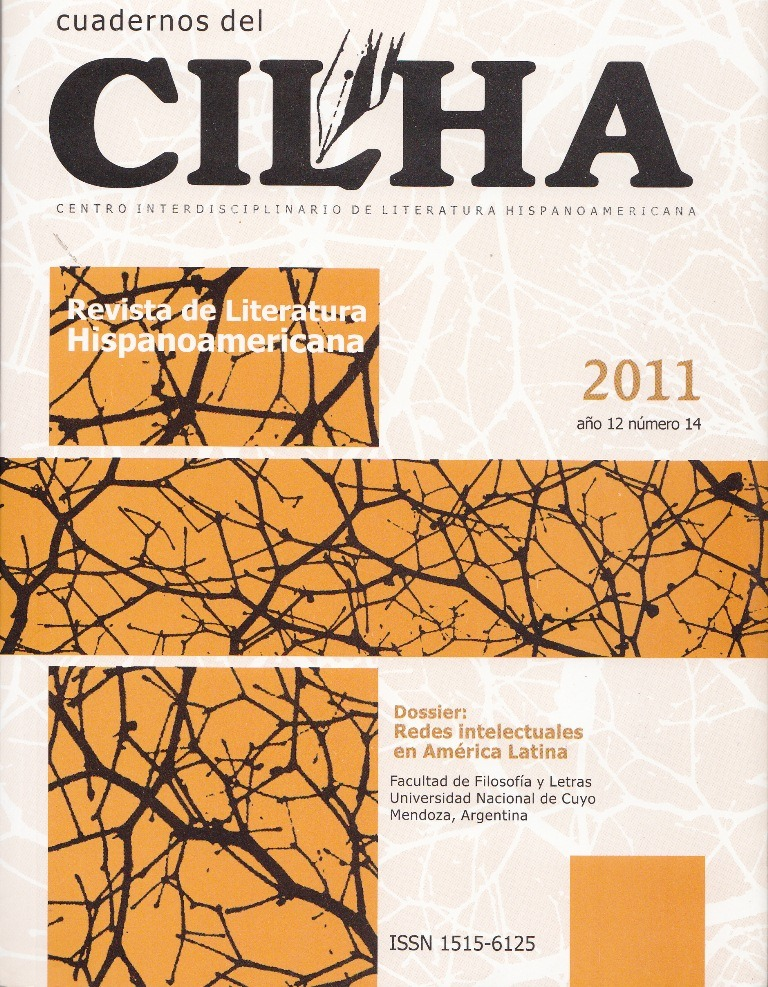The networks of peripheral intellectuals between 1920 and 1940.
Attempt at a mapping and a theoretical approach.
Keywords:
International intellectual networks, Pan-Asian, Pan-Africanism, Pan-Islamism, Latin AmericanismAbstract
This paper is about understanding the following problem: how intellectual networks were established in various parts of the periphery and how they articulated with each other, becoming agents of the meta-nationals spaces (beyond the nation-state) and trying to even have a presence in global space. The aim of this paper is to study intellectual networks in peripheral regions during the interwar period. The specific objectives, in turn, are: first, to map the most prominent intellectual networks in each of the 7 environments intellectuals of peripheral regions in the period between the two world wars. These are the Spanish-American space, the Islamic South-Saharan Africa and Afro-descendants, the pan-Asiatic second generation, the nationalist Indian subcontinent, the Slav-Balkan-Euro-Asian and Indonesian space and secondly, these instances show the connections between intellectual networks in these sub-spaces, which will be referred to the key figures, publications, institutions, meetings and eidetic factors that met joint function. Finally we conclude with some reflections that tend to connect these networks and their initiatives to the needs of thinking these same issues in the present.
References
Celentano, Adrián. "Ideas e intelectuales en la formación de una red sudamericana antifascista"–. Literatura y Lingüística, n. 17, 2006.
Denzer, La Ray. "Wallace-Johnson and the Sierra Leone labor crisis of 1939"– en African Studies Review, vol. XXV, n. 2-3, junio-septiembre, 1982.
Devés, Eduardo. El pensamiento africano sudsahariano. Desde mediados del siglo XIX a la actualidad. Buenos Aires: Biblos, 2011.
Devés, Eduardo. El pensamiento latinoamericano en el siglo XX: Tomo I: Del Ariel de Rodó a la CEPAL. Buenos Aires-Santiago de Chile: Biblos-DIBAM, 2000.
Esenbel, Selçuk. "•Japan's Global Claim to Asia and the World of Islam: Transnational Nationalism and World Power, 1900–1945"–. The American Historical Review, vol 109, n. 4, octubre, 2004. En línea: www.historycooperative.org/journals/ahr/109.4/esenbel.html
Fell, Claude. "•Panamericanismo e, Iberoamericanismo: el debate entre los intelectuales latinoamericanos"–, Revista Nuestraamérica, n. 15, UNAM, México, 1986.
Jankowski, James. "•The Eastern idea and the Eastern Union in interwar Egypt"–. En: The International Journal of African Historical Studies, vol. 14, n. 3, 1981.
Laruelle, Marlene. L‘idéologie eurasiste russe ou comment penser l‘empire. Paris: L‘Harmattan, 1999.
Laruelle, Marlene. "La triangulaire « Russie », « exil russe », « culture d‘accueil » : le prisme occidental inassumé de l‘eurasisme"–, (s/f). En línea: www.russie-europe.ens-lsh.fr/article.php3?id_article=51
Legge, J. D. Sukarno: a political biography. Sydney, Londres, Boston: Allen and Unwin, 1972.
Melgar Bao, Ricardo. Redes e imaginarios del exilio en México y América Latina: 1934-1940. México: Libros en Red, 2003.
Nouchi, André. L‘Algerie amere 1914-1994. Paris: Edit. De la Maison des Sciences de l´Homme, 1995. Rizk, Yunan Labib. "Al-Ahram: A Diwan of contemporary life"–. 2001. En línea: weekly.ahram.org.eg/2001/516/chrncls.htm
Sattar, Sadia. "OLD FRIENDSHIPS: EXPLORING THE HISTORIC RELATIONSHIP BETWEEN PAN-ISLAMISM AND JAPANESE PAN-ASIANISM"–. University of Pittsburgh, 2008. En línea: etd.library.pitt.edu/ETD/available/etd-08042008-100733/unrestricted/sadia_sattar_etd2008.pdf Sériot, Patrick. Structure et totalité. Les origines intellectuelles du structuralisme en Europe centrale et orientale. Paris: PUF, 1999.
Stabb, Martín. América latina en busca de una identidad. Caracas: Monte Ávila, 1969.
Sumi-Barnett, Yukiko. "India in Asia: Ôkawa Shûmei‘s Pan-Asian Thought and His Idea of India in Early Twentieth-Century Japan"–. 2004. Journal of the Oxford University History Society.
Van MiertA, Hans. "The "—Land of the future‘: The Jong Sumatranen Bond (1917-1930) and its image of the nation"–. Modern Asian Studies. n. 30, 1996: 3












































